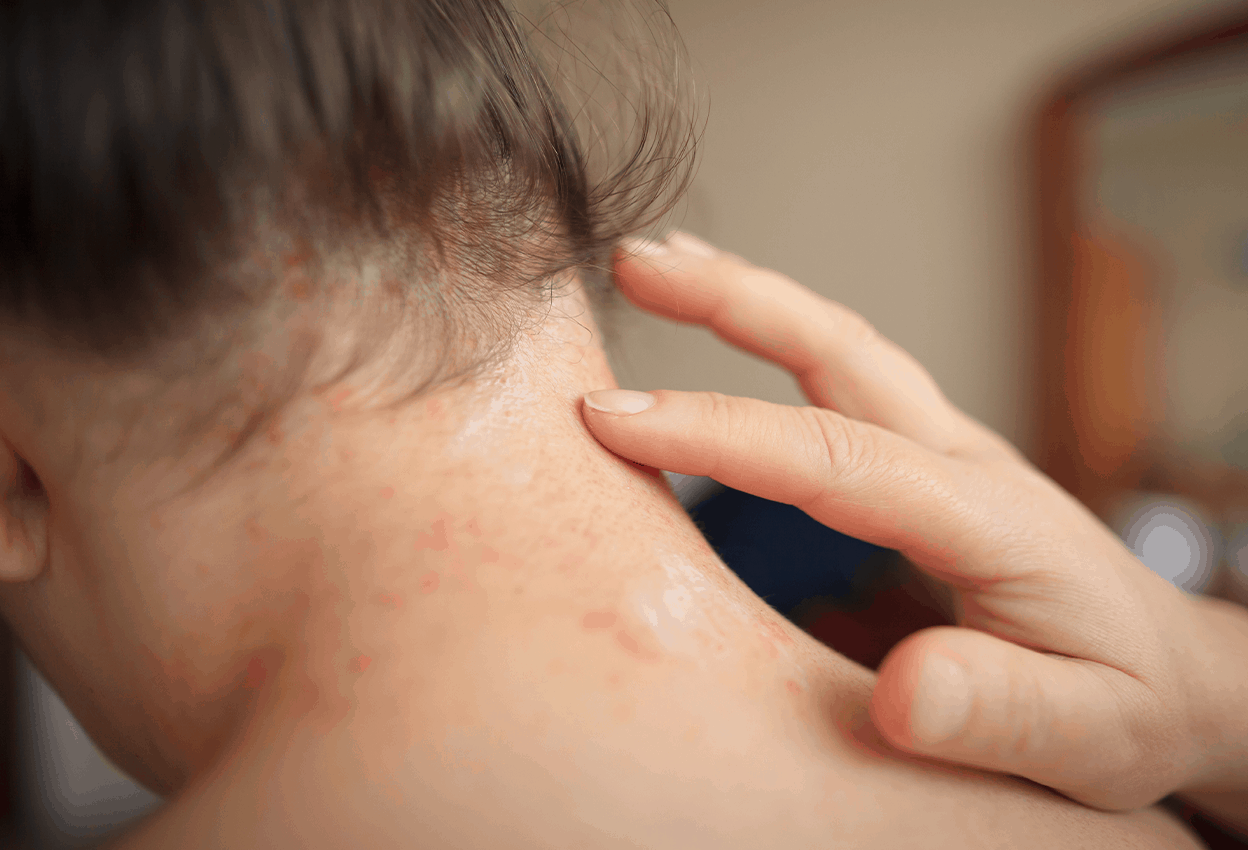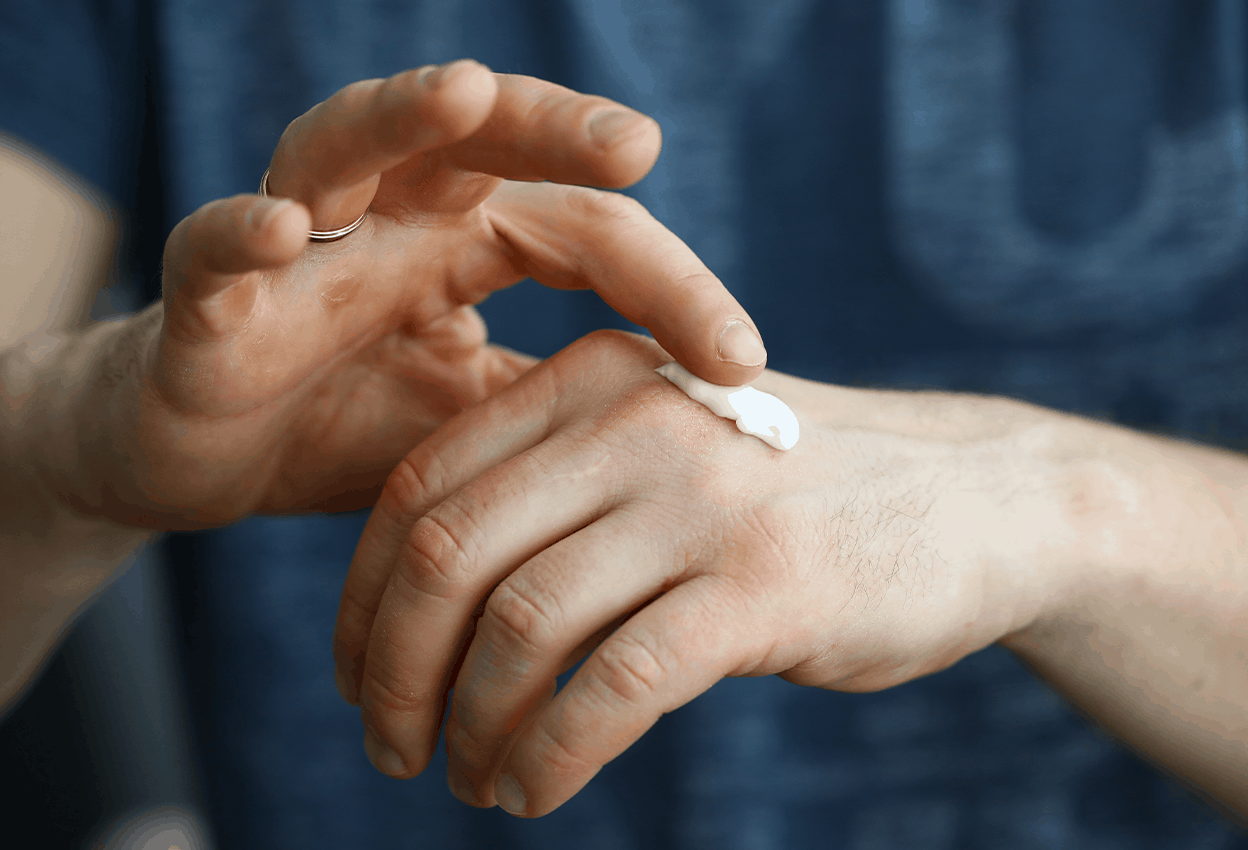Eczema
Eczema is a group of conditions that all cause the skin to be inflamed, itchy, or develop a rash. While the exact cause of the condition is not currently known, researchers do know that it develops from a combination of genetics and environmental triggers.
Eczema
Eczema is a group of conditions that all cause the skin to be inflamed, itchy, or develop a rash. While the exact cause of the condition is not currently known, researchers do know that it develops from a combination of genetics and environmental triggers.

What Are the Environmental Triggers for Eczema?
Common culprits are harsh substances like laundry detergents or other soaps and cleaning agents. Other patients might be affected by humid weather, extreme stress, and excessive perspiration. The environmental triggers for eczema really just varies from person to person. However, the condition is often the first sign of allergic diseases like allergic rhinitis, which is why an allergist like Dr. Farnam is often consulted for treatment.
What Are the Types of Eczema?
The different types are:
- Atopic dermatitis occurs when the skin’s natural barrier against the elements is weakened. This means a patient’s skin is less able to protect them against irritants and allergens.
- Contact dermatitis is an affliction when patients come into contact with a substance that irritates the skin or causes an allergic reaction.
- Dyshidrotic eczema causes small blisters to form on a patient’s hands and feet.
- Nummular eczema causes round, coin-shaped spots to form on your skin that can be uncomfortably itchy.
- Seborrheic dermatitis often afflicts the scalp and causes scaly patches, red skin and stubborn dandruff.
- Stasis dermatitis is a condition that causes inflammation, ulcers, and itchy skin on the lower legs.


Can Eczema be Permanently Cured?
Unfortunately, a permanent cure does not currently exist. However, there are many exciting treatment options available with more options in development, all of which can make living with the condition easier and patients comfortable in their own skin.
What Are the Treatments for Eczema?
Depending on the type of the condition that’s been diagnosed and its severity, treatments for the condition include lifestyle changes, over-the-counter remedies, or prescribed medications. For instance, if a specific trigger can be identified such as a type of cleaner, avoiding direct contact with that cleaner can prevent irritations. Dr. Farnam can work with patients to identify triggers. Generally speaking, though, keeping the skin moisturized is a critical element to any treatment during outbreaks. Emollient moisturizing gels or creams may be used, and topical steroids may also be helpful to alleviate flare-ups.

